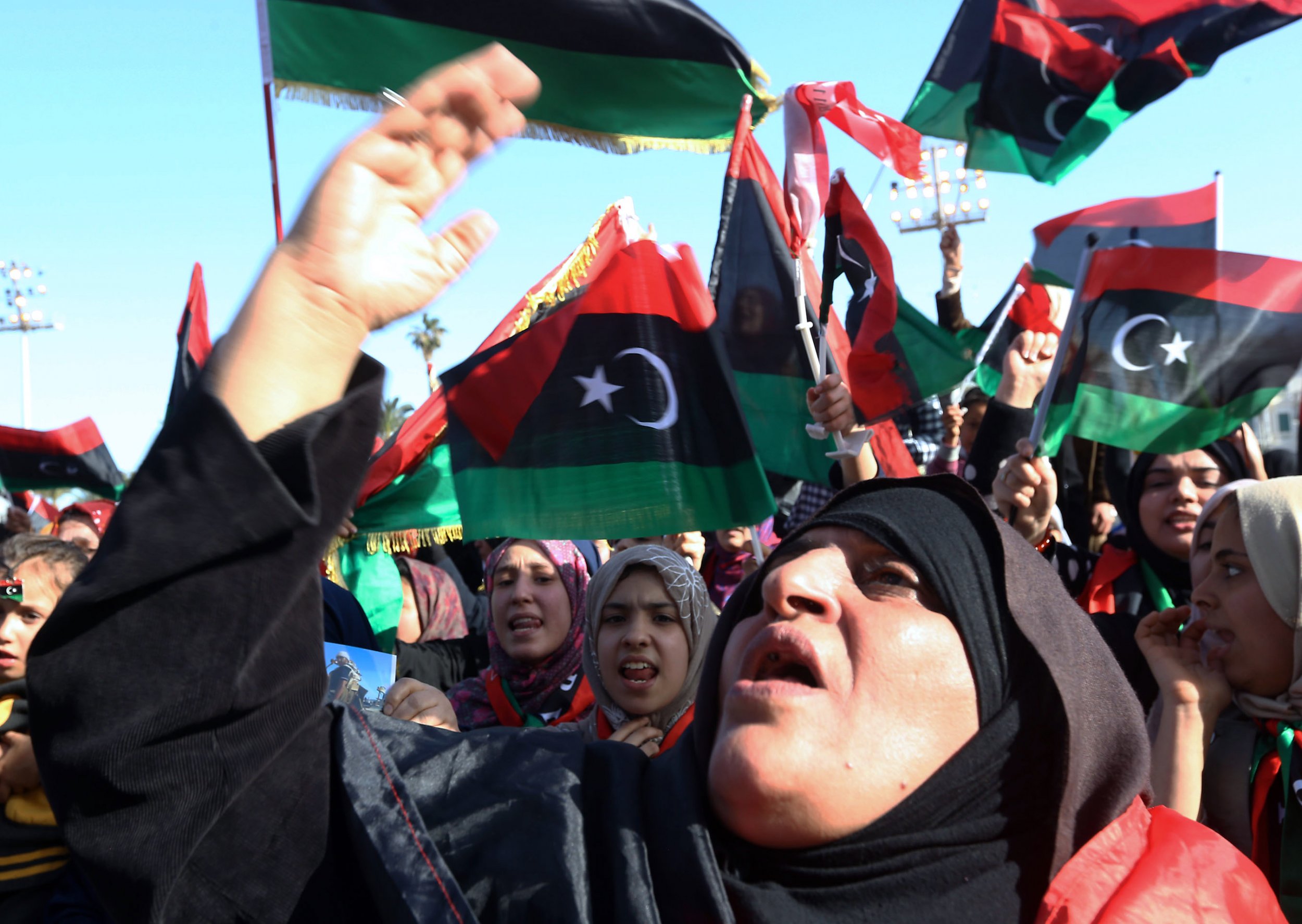
Eastern Libya's military government has banned women under the age of 60 from traveling abroad alone, prompting an outcry from women's rights activists in the North African country.
Military officials in the eastern city of al-Baida imposed the ban on Thursday, starting with the city's Labraq international airport, the BBC reported. It is to be enforced on all women traveling alone via land, air and sea, and will also affect those transiting through the east of the country.
There are several rival governments competing for legitimacy in Libya, where a 2011 revolution overthrew longtime leader Muammar el-Qaddafi. The U.N.-backed Government of National Accord, led by Prime Minister Fayez Serraj, is based in Tripoli, while the eastern government is led by Libyan Chief of Staff Abdel-Razek al-Nadhouri and overseen by Khalifa Haftar, an influential military general. A third administration calling itself the National Salvation government has also recently claimed to have taken control of several of the U.N.-backed government's ministries in Tripoli.
The director and co-founder of the Libyan Women's Platform for Peace, Zahra' Langhi, tells Newsweek that the ban is "appalling" and that she has received reports of high-ranking women fleeing the country through unofficial routes.
"We've lost many of our friends who stood against Islamist militias and radical Salafis—we lost many of our friends, [but] not to get this in return," says Langhi, speaking via telephone from Aswan, Egypt. "We believe in the importance of having an inclusive democracy, gender equality, [and] a civil state, but this is what we are getting."
One of Langhi's close friends, the prominent Libyan women's rights activist, Salwa Bugaighis, was assassinated in Benghazi in 2014 by unknown assailants on the day of the country's general election. Langhi says she fled the country in 2014.
Langhi says the ban is evidence of the rise of "so-called quietist Salafism" in eastern Libya. Salafism is an ultra conservative form of Islam, often accompanied by adherence to a strict moral code. Quietist Salafism refers to a form of the religion that eschews political engagement, according to the Brookings Institution.
In an interview on Libyan television, al-Naduri claimed that the ban was a national security measure and was not motivated by politics or religious ideology. Al-Naduri said that women claiming to represent civil society groups were often used by foreign intelligence for espionage.
The ban has prompted criticism and mockery online from activists, while the U.N. mission in Libya tweeted that freedom of movement was a basic human right of all people. The ban has also prompted a satirical version of Spanish musician Enrique Iglesias's song "Hero". The Libyan version is titled, "I can be your Mahram baby". Mahram is an Arabic, religious term referring to a male guardian.
Uncommon Knowledge
Newsweek is committed to challenging conventional wisdom and finding connections in the search for common ground.
Newsweek is committed to challenging conventional wisdom and finding connections in the search for common ground.
About the writer
Conor is a staff writer for Newsweek covering Africa, with a focus on Nigeria, security and conflict.
To read how Newsweek uses AI as a newsroom tool, Click here.








